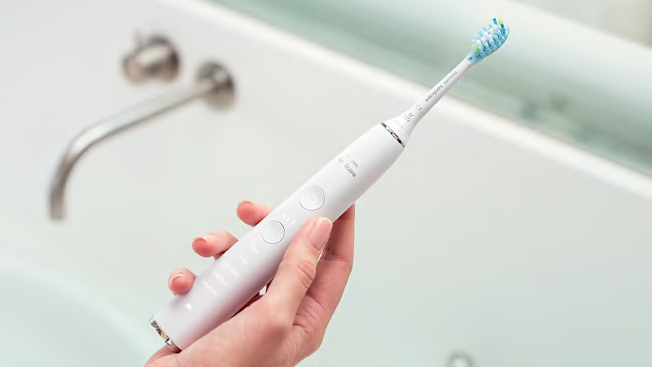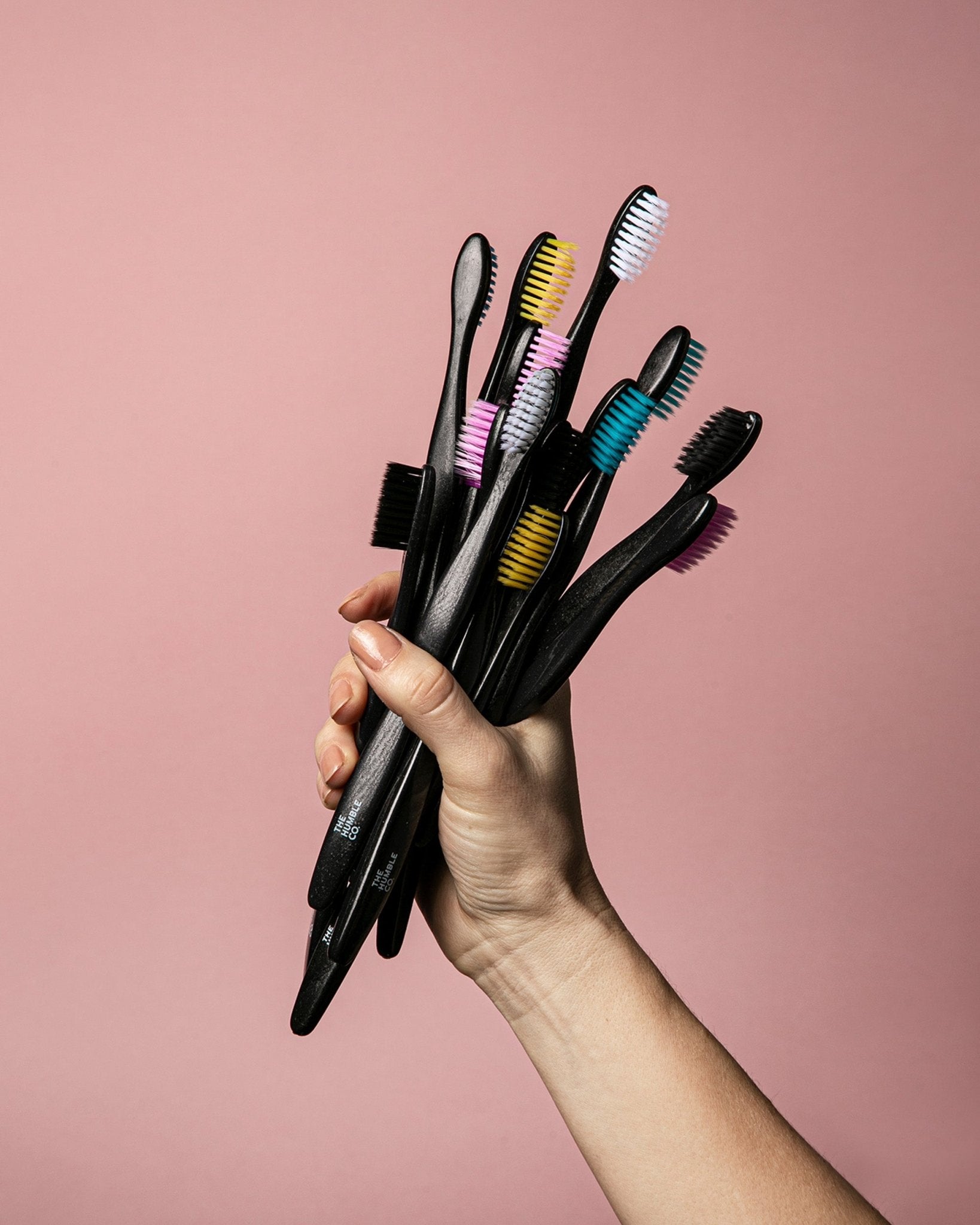A Complete Comparison of Toothbrushes: Manual vs. Electric Showdown
Checking Out the Numerous Kinds Of Toothbrushes and Their Special Advantages for Oral Health
The landscape of toothbrushes varies, with each kind offering unique benefits for dental wellness. From the traditional manual Toothbrush to the high-tech electrical version, consumers have options that accommodate certain requirements. Hard-bristled and soft brushes serve different purposes, while interdental brushes target hard-to-reach areas. Eco-conscious selections are also arising. Comprehending these variants can considerably impact oral health routines, triggering a better look at which option could be the ideal fit.
Manual Toothbrushes: The Traditional Choice
Numerous contemporary choices exist, hands-on toothbrushes remain a reputable and popular selection for maintaining oral health. They are extensively easily accessible and come in various bristle types and sizes, enabling customers to choose options that match their private requirements (Toothbrushes). Manual tooth brushes do not need batteries or billing, making them practical for travel or everyday usage
Their simplicity likewise enables effective plaque removal when made use of appropriately, as individuals can control stress and angle throughout brushing. Numerous dental professionals support hands-on toothbrushes because of their convenience of use and effectiveness in cleaning teeth and periodontals.
Furthermore, they are commonly more inexpensive than electric choices, making them an economical choice for families. The tactile experience of a hand-operated Toothbrush can improve one's connection to the cleaning process, promoting far better dental health behaviors. In general, hands-on tooth brushes remain to be a reputable and ageless tool for achieving ideal dental health.
Electric Toothbrushes: Advanced Modern Technology for Better Cleaning
Electric toothbrushes have actually gained appeal as a contemporary solution for improved oral care, using features that promote a lot more effective cleaning contrasted to their manual counterparts. The oscillating and rotating bristle motions of these gadgets can especially decrease plaque buildup and boost periodontal wellness. Several electrical tooth brushes come furnished with timers, ensuring that individuals clean for the advised two mins, which is frequently neglected with guidebook brushes.
Additionally, some designs include stress sensing units that inform users when they are brushing too hard, helping to protect against gum damages. The comfort of integrated rechargeable batteries allows for regular use without the constant requirement for battery replacement. Additionally, numerous cleaning modes accommodate individual needs, such as delicate teeth or lightening. Overall, electric toothbrushes offer an innovative strategy to oral hygiene, raising the requirement of treatment and making oral health regimens more reliable and reliable.
Soft-Bristled Toothbrushes: Gentle Look After Sensitive Gum Tissues
For individuals with delicate gum tissues, soft-bristled tooth brushes supply a gentle yet efficient cleaning choice. These tooth brushes include bristles that are made to be flexible, reducing the danger of irritation while still properly eliminating plaque and food particles. The soft bristles slide over the gum line, guaranteeing that the delicate cells are not damaged throughout cleaning.
Dental experts typically advise soft-bristled toothbrushes for those vulnerable to gum sensitivity or problems such as gingivitis. Toothbrushes. They permit a complete tidy without causing discomfort or exacerbating existing issues. Additionally, soft-bristled brushes appropriate for individuals recovering from oral procedures, as they provide essential treatment without compromising recovery
Including a soft-bristled Toothbrush into one's oral hygiene regimen can add to much healthier gum tissues and total oral wellness, making it a crucial tool for those with particular sensitivities.
Hard-Bristled Toothbrushes: When to Make use of and Cautions
While hard-bristled tooth brushes can successfully get rid of persistent plaque and discolorations, they should be made use of with care. These brushes are created for people with robust enamel and healthy and balanced gum tissues, as their tight bristles can be rough. Overuse or excessive stress can result in gum tissue recession, enamel disintegration, and enhanced tooth sensitivity. Dental professionals often suggest scheduling hard-bristled brushes for specific cases, such as after oral treatments or for those with certain oral health and wellness conditions that need more aggressive brushing strategies. Customers need to consider their very own oral health and wellness condition and seek advice from a dentist before making the switch to a hard-bristled brush. For a lot of people, a softer bristle option might provide ample cleaning while reducing potential damage. Eventually, recognizing when to make use of a hard-bristled Toothbrush is necessary for preserving ideal dental health and wellness without endangering the stability of periodontals and teeth.
Interdental Brushes: Targeted Cleansing for Tight Spaces
Interdental brushes are a very reliable device for cleaning limited areas between teeth where typical tooth brushes can not get to. Their one-of-a-kind style, featuring a small brush directly a slender address take care of, permits for much easier maneuvering in narrow voids. This accuracy cleansing helps get rid of plaque and food particles that can result in cavities and gum condition.
Unlike floss, interdental brushes can be extra comfortable and easier to make use of, specifically for people with dental braces, bridges, or bigger spaces between teeth. They come in various sizes, fitting different interproximal rooms, ensuring that people can select the appropriate fit for their dental requirements.
Normal use interdental brushes can enhance overall dental health, bring about fresher breath and much healthier gums. Oral professionals commonly suggest including them right into daily regimens, highlighting their function in avoiding oral concerns and maintaining oral health and wellness efficiently.
Eco-friendly and Eco-Friendly Toothbrushes: Sustainable Alternatives for Oral Treatment
Sustainable oral treatment is ending up being progressively essential as even more individuals look for environmentally friendly alternatives to conventional oral products. Naturally degradable and eco-friendly toothbrushes are obtaining popularity due to their minimal environmental impact. These toothbrushes are commonly made from sustainable materials such as bamboo, which disintegrates normally, decreasing plastic waste in landfills and seas.
One noteworthy benefit of eco-friendly tooth brushes is their capacity to maintain efficient dental health while promoting sustainability. A number of these products feature soft, BPA-free bristles that guarantee mild yet detailed cleansing. Furthermore, brands commonly make use of recyclable product packaging, more contributing to their environmentally friendly credentials.
Consumers are motivated to ponder the lifecycle of their toothbrushes and go with alternatives that line up with their worths. By selecting eco-friendly tooth brushes, individuals make an aware effort to sustain environmental initiatives while prioritizing their oral wellness. This shift mirrors a wider dedication to sustainable living and accountable intake methods.
Frequently Asked Concerns
How Frequently Should I Replace My Tooth brush?
It is advised that people replace their Toothbrush every 3 to 4 months, or sooner if the bristles end up being torn. This practice helps keep reliable cleaning and promotes much better dental health, contributing to overall oral wellness.
Can Kid Use Electric Toothbrushes Securely?
Yes, children can securely utilize electric tooth brushes, offered they are monitored and age-appropriate. These tooth brushes can improve brushing performance, making oral health much easier and extra engaging for youngsters, promoting much better dental health practices from a young age.
What Is the most effective Toothbrush for Braces?

Are There Toothbrushes Particularly for Dental Implants?
Yes, there are toothbrushes particularly created for dental implants. These Discover More Here toothbrushes frequently feature softer bristles and specialized forms to successfully clean around the implant site while reducing check my source damage to the surrounding gum tissue.
Do Toothbrush Storage Space Methods Affect Their Health?
Toothbrush storage space approaches substantially affect hygiene. Saving brushes upright in a well-ventilated area aids stop microbial development, while enclosed containers can promote wetness retention, causing potential contamination and reduced efficiency in maintaining dental health and wellness.
